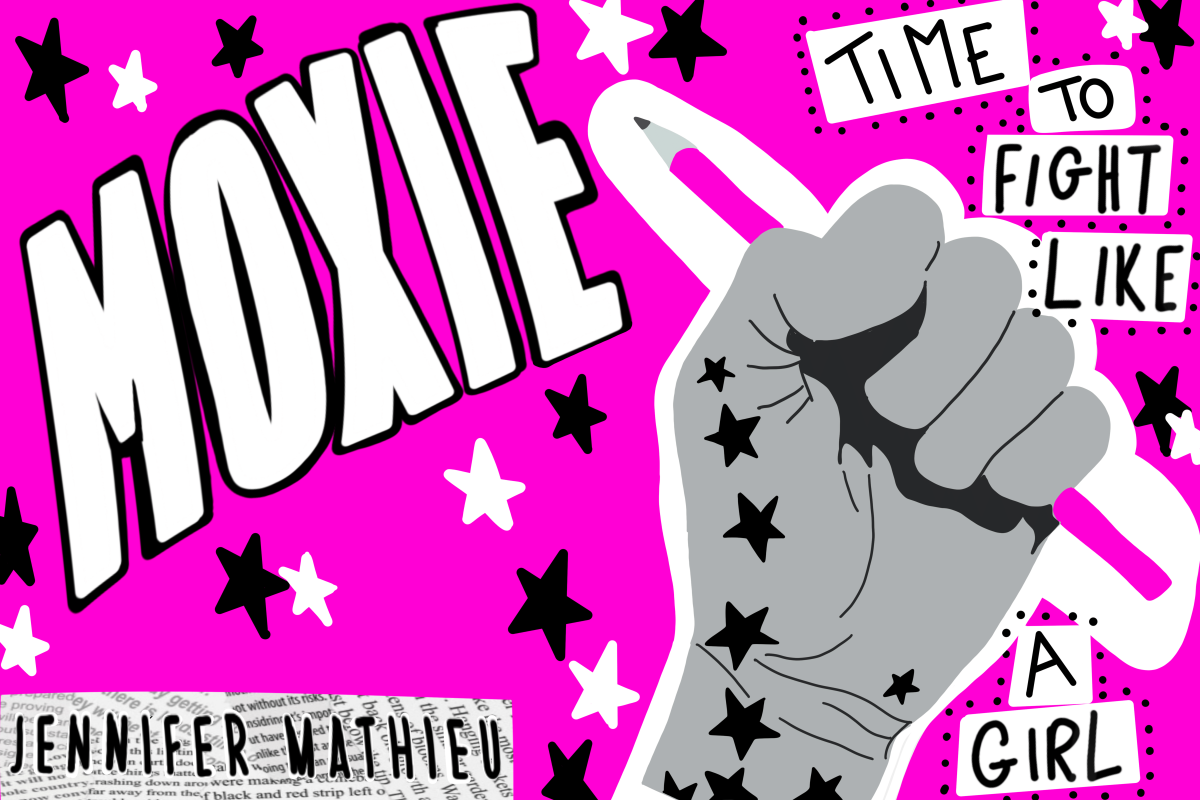“Moxie” is a flawed but fun coming-of-age dramedy about a shy teenager who anonymously initiates a feminist uprising in her high school in protest against a sexist, objectifying status quo.
Adapted from the 2015 novel of the same name, the film is directed by Amy Poehler from a screenplay written by Tamara Chestna and Dylan Meyer. “Moxie” stars Hadley Robinson, Alycia Pascual-Peña, Lauren Tsai, Patrick Schwarzenegger, Nico Hiraga, Sydney Park, Josephine Langford, Clark Gregg, Ike Barinholtz, Poehler and Marcia Gay Harden. “Moxie” is currently available to stream on Netflix.
The film begins with 16-year-old Vivian, played by Robinson, entering the first day of her junior year at Rockport High School. She quickly learns of a new student at the school, Lucy, played by Pascual-Peña, who finds herself the target of harassment by the captain of the football team, Mitchell Wilson, played by Schwarzenegger.
While Vivian initially advises Lucy to keep her head down and ignore Mitchell, she eventually hits her breaking point when a document ranking girls at the school goes viral during a pep rally. The next day, Vivian posts hundreds of flyers throughout the school calling for a rejection of the misogynistic atmosphere of her school, using the pseudonym “Moxie.” This causes Lucy and several other girls to join Vivian and form a feminist club utilizing the same name, bringing them in conflict with both Mitchell and the school principal.
The highlight of Poehler’s film is its soundtrack. The film’s feminist themes are perfectly complemented by the use of classic feminist songs such as “Rebel Girl” by Bikini Kill and “Fire With Fire” by The Gossip. They are especially relevant because part of Vivian’s motivation is her mother Lisa’s, played by Poehler, participation in the “Riot grrrl” movement during her youth. Adding these older songs to the soundtrack helps convey the film’s desire that “Moxie” be seen as a second coming of the feminist protests of old.
Further strengthening the film is its choice of cast, even if they are not all utilized to their fullest potential. Robinson does a good job selling Vivian’s shyness and vulnerability, though she does not particularly stand out in comparison to the movie’s supporting protagonists. Not helping this is that she is overshadowed by Pascual-Peña, who brings Lucy to life with an unapologetic strength and tenacity, which can make some viewers wish she was the protagonist instead.
Playing Vivian’s love interest Seth, Hiraga is instantly endearing from his first scene, serving as one of the few men in this film who is even halfway decent. Barinholtz clearly has fun as English teacher Mr. Davies, providing a funny and interesting performance that keeps the audience guessing as to which side of the conflict he ultimately aligns with.
If there are weak links, it would be the film’s main antagonists Mitchell, played by Schwarzenegger, and Principal Shelly, played by Harden. While he is meant to be hated by the audience, Mitchell is played as almost cartoonishly evil in his harassment of the girls, sometimes straining credulity that he could get away with his misconduct for as long as he has. He is ultimately more of a symbolic caricature than an actual, human villain. Harden is a talented actress, but Principal Shelly is just the same obstructive school principal that is present in most teen dramas, showing little depth and leaving an even smaller impression.
This is just one example of the script’s primary flaw: it is not nearly as revolutionary or provocative as it thinks it is. The story is grating in its unoriginality and predictability, as it preaches standing up to injustice while delivering that message in a safe and bland narrative that fails to leave any meaningful impact on viewers. This is a shame as that same script is brought to life by impressive talent and production values, with Tom Magill’s vibrant cinematography allowing the audience to immerse themselves in this familiar small-town environment.
I mentioned before that Lucy would make a better protagonist than Vivian, but that sentiment could actually apply to much of the supporting cast. Many of them are more interesting and could potentially offer more inspirational stories than the main protagonist.
For example, one scene in the film hints at a budding relationship between Lucy and her friend Amaya, played by Anjelika Washington, but it amounts to a throwaway plot point.
Emily Hopper’s Meg, a wheelchair-bound student who joins “Moxie,” is funny and sarcastic, serving as a welcome depiction of a double amputee that does not center her story on her disability. However, this goodwill is dashed by the film’s decision to relegate her to a bit role. “Moxie” has radical feminist aspirations, but they are constantly handicapped by the film’s insistence on centering its narrative on the struggles of a relatively privileged and able-bodied white girl.
One of the film’s better scenes even brings some attention to this, as Vivian’s best friend Claudia, played by Tsai, calls out her cowardice by pointing out how Vivian’s status affords her far greater leeway to take risks than Claudia’s can. However, this scene occurs towards the end of the feature, where it is too little, too late. This is only compounded by the final scene: a generic and vapid dance party that was ripped from a thousand other teen movies.
“Moxie” is certainly well-intentioned and can be a lot of fun at times. Poehler is a talented entertainer and she brought together a terrific cast that worked well off each other. The soundtrack is a consistent delight and the cinematography is on point. However, these positives are held back by an unambitious script that can offer the superficial visage of a meaningful message.
Rating: 5/10 Hawks
















































